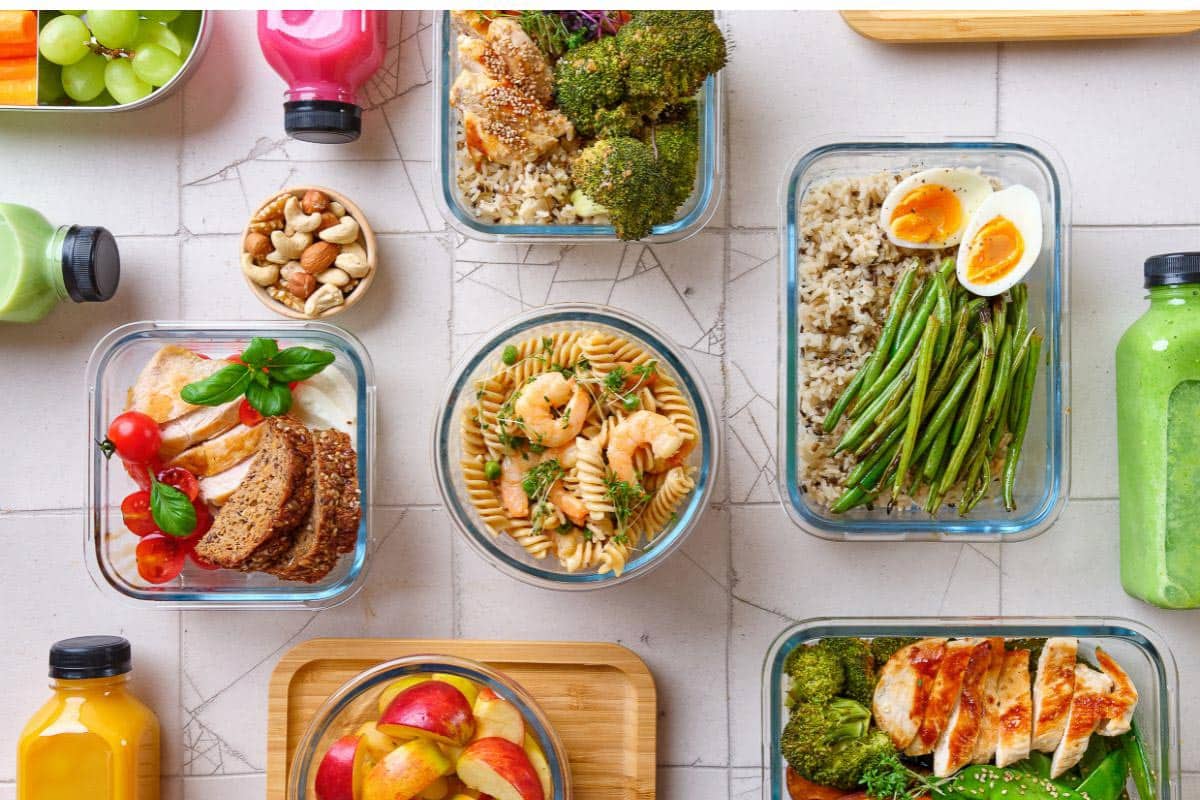In our fast-paced world, prioritizing our health has never been more crucial. Embracing healthy habits can significantly enhance our overall well-being and quality of life. These 25 are our top choices for improving and maintaining one’s self during their life-time.
Stay Hydrated

One of the simplest yet most vital habits is staying hydrated. Water is essential for digestion, energy production, and maintaining clear skin. To stay hydrated, aim to drink at least 8 glasses (64 ounces) of water per day. You can also include hydrating foods like watermelon and cucumber in your diet.
Prioritize Balanced Nutrition

Eating a balanced diet rich in fruits, vegetables, lean proteins, and whole grains provides your body with essential nutrients for optimal functioning. Try to fill half your plate with colorful fruits and vegetables, choose lean protein sources like chicken or tofu, and opt for whole grains like brown rice or quinoa.
Get Regular Exercise

Physical activity not only keeps you fit but also reduces stress, improves mood, and enhances cardiovascular health. Aim for at least 150 minutes of moderate-intensity exercise per week. Activities like brisk walking, cycling, and swimming are great options.
Practice Mindful Eating

Mindful eating involves slowing down during meals, savoring each bite, and paying attention to hunger cues to avoid overeating. Try eating without distractions, such as TV or smartphones, and focus on the flavors and textures of your food.
Quality Sleep

Aim for 7-9 hours of quality sleep per night to promote mental and physical recovery. Create a relaxing bedtime routine, keep your bedroom dark and cool, and avoid screens before sleep to improve your sleep quality.
Stress Management

Incorporate stress-relief techniques like meditation, deep breathing, or yoga into your daily routine to reduce stress levels. Even just a few minutes of deep breathing can help you feel calmer and more centered.
Maintain a Healthy Weight

Achieving and maintaining a healthy weight reduces the risk of various chronic illnesses. Focus on portion control, choose nutrient-dense foods, and engage in regular physical activity to help manage your weight.
Regular Check-ups

Scheduling routine medical check-ups can help detect potential health issues early on. Visit your healthcare provider for regular screenings, vaccinations, and discussions about your overall health.
Dental Hygiene

Proper dental care, including regular brushing and flossing, is crucial for overall health. Brush your teeth at least twice a day, floss daily, and don’t forget to schedule regular dental check-ups.
Limit Sugar Intake

Reducing sugary beverages and snacks can help prevent weight gain and tooth decay. Opt for healthier snacks like fresh fruit or unsweetened yogurt and limit sugary drinks like soda.
Practice Portion Control

Being mindful of portion sizes can prevent overeating and support weight management. Use smaller plates, measure servings, and listen to your body’s hunger cues to avoid overindulging.
Fiber-Rich Foods

Incorporate fiber-rich foods like beans, whole grains, and vegetables into your diet for improved digestive health. Examples include adding chickpeas to salads or choosing whole-grain pasta instead of regular pasta.
Avoid Smoking and Limit Alcohol

Quitting smoking and moderating alcohol consumption have numerous health benefits. Seek support and resources if you need help quitting smoking, and limit alcohol to moderate levels (up to one drink per day for women and up to two drinks per day for men).
Regular Handwashing

Frequent handwashing reduces the spread of germs and helps prevent illnesses. Wash your hands thoroughly with soap and water for at least 20 seconds, especially before meals and after being in public places.
Stay Socially Connected

Maintaining social connections can boost mental health and provide emotional support. Make an effort to stay in touch with friends and loved ones, whether through phone calls, video chats, or in-person visits when possible.
Learn to Manage Stress

Develop healthy coping mechanisms for stress, such as engaging in hobbies or seeking professional therapy. Consider activities like painting, journaling, or practicing mindfulness to reduce stress.
Sun Protection

Using sunscreen to protect your skin from harmful UV rays can reduce the risk of skin cancer. Apply sunscreen with at least SPF 30 before going outside and wear protective clothing and sunglasses on sunny days.
Vaccinations

Staying up-to-date on vaccinations protects you and others from preventable diseases. Consult your healthcare provider to ensure you receive recommended vaccines based on your age and health status.
Mental Health Check-ins

Regularly assess your mental health and seek help when needed. If you experience persistent feelings of sadness or anxiety, reach out to a mental health professional for support and guidance.
Practice Gratitude

Cultivating gratitude by reflecting on positive aspects of your life can improve your mental well-being. Start a gratitude journal to jot down things you’re thankful for each day.
Limit Screen Time

Reducing excessive screen time can improve sleep quality and encourage physical activity. Set boundaries on screen use, especially before bedtime, and engage in activities that don’t involve screens.
Stay Informed

Staying informed about current health guidelines and recommendations is essential for making informed choices. Follow reputable sources such as the Centers for Disease Control and Prevention (CDC) and the World Health Organization (WHO) for updates.
Environmental Awareness

Contributing to a healthier planet by adopting eco-friendly habits like recycling and reducing waste benefits both you and the environment. Recycle paper, plastic, and glass, and reduce single-use plastics in your daily life.
Time Management

Efficient time management reduces stress and allows for a better work-life balance. Use tools like calendars and to-do lists to prioritize tasks and allocate time for relaxation and self-care.
Volunteer and Give Back

Volunteering and acts of kindness not only benefit others but also boost your own happiness. Find volunteer opportunities in your community or simply offer help to those in need.
Conclusion

Incorporating these 25 healthy habits into your daily life can have a profound impact on your physical and mental well-being. Remember that adopting these habits is a journey, and small changes can lead to significant improvements in your overall health and happiness. Start today and embrace a brighter, healthier future.
FAQs

Q1: How can I start incorporating these habits into my life?
Start by selecting a few habits that resonate with you and gradually integrate them into your daily routine.
Q2: Are these habits suitable for people of all ages?
Yes, these habits are generally beneficial for individuals of all ages, but consult with a healthcare professional for personalized advice.
Q3: How long does it take to see the benefits of these habits?
The timeline varies, but consistency is key. You may start feeling improvements in a few weeks to a few months.
Q4: Can these habits prevent serious illnesses?
While they can reduce the risk of many illnesses, genetics and other factors play a role. Regular check-ups are still essential.
Q5: What if I struggle to maintain these habits?
Seek support from friends, family, or professionals. Small, gradual changes can lead to lasting results.
Resources

Harvard T.H. Chan School of Public Health – The Nutrition Source. (n.d.). Healthy Beverage Guidelines.
Mayo Clinic. (2021). Nutrition and healthy eating.
American Heart Association. (2021). Benefits of Physical Activity.
Harvard Health Publishing. (2021). Mindful Eating.
National Heart, Lung, and Blood Institute. (n.d.). Sleep Deprivation and Deficiency.
Mayo Clinic. (2021). Stress management.
Centers for Disease Control and Prevention. (2020). Healthy Weight.
Mayo Clinic. (2021). Checkups and screening tests.
American Dental Association. (n.d.). Oral Health.
Centers for Disease Control and Prevention. (2020). Rethink Your Drink. National Heart, Lung, and Blood Institute.







